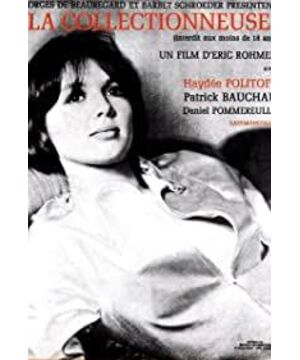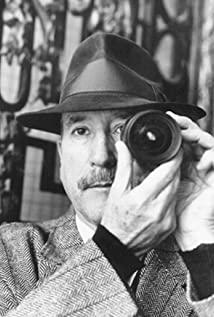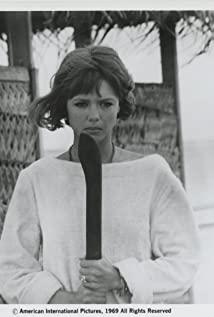This is a beautiful essay on the pendulum of sex, interpersonal and desire. The word count is not long, only about two thousand words. The logic is rigorous and deduced layer by layer, but it is difficult to conceal the author's text between the lines. The wording is ironic, serious but full of kindness and love.
This is a female collector.
Three prefaces introduce the characters.
Heidi: That is the body. The lens is like gaze on the body, as an introduction to Heidi. Heidi-the biggest representation of women is the flesh (signifier of desire)
Daniel: Wrap a paint can surrounded by blades with words. , With wild "blade" style words and deeds to pack their own consumption and shrinking lining.
Male protagonist: Moral pacesetter, a lofty counterattack against the "Appearance Association" remarks.
Relationship: Men desire to master women (men watch the sculptures of female nudes), side by side desires (men and women who have sex in the house)
The characters in the film are freely placed in the scorching green and lonely white buildings. Like the pronoun of human beings, it is Adam and Eve peeled off to the simplest, thus reaching the deepest.
Hou Mai has extended the film's time and space to infinity in a large number of environmental explanations and the permanent and beautiful changes in the position of the characters. As a result, we consciously separate the characters from the traditional storyline to represent human beings.
The introduction ends and the text begins.
In my opinion, the film satirizes a lot of things in different sizes: the hypocrisy of men, the deceptiveness of appearance, the ingenuity of language, etc.
But what it really spread out shows the following points:
1. A man needs loneliness and freedom. He lives in a white villa, but starts a desperate love chase. When he returns to the deserted villa after defeat, he concludes that "loneliness and freedom are imposed on me", Call and drive to london
Men package themselves, using "noble solitude" as an antidote. As soon as the bait of actual desire came, he would indulge in it, happily. Finally, I have to admit that the so-called "hermit" life is fundamentally a twisted melon for him.
This is the vain effort of human beings. The wrong packaging oneself to post the so-called "noble", the result is just a joke on him like a monkey by life.
2. The triangle relationship is not stable between men and women.
There are two triangle relationships in the film: the male protagonist, Heidi, and Daniel. Male protagonist, Heidi, Sabo.
Each set of relationships is precarious and will eventually break. While explaining the position of the characters through the lens, Rohmer also deliberately presented several perfect triangles.
The minority genders in such a relationship will inevitably have the upper hand, no matter what mistakes they make, they will be digested and left to the other two corners, thus possessing the real power behind them.
3. What is true morality?
The female collector is one of Rohmer's six moral stories. The moral issues it discusses are, in my opinion, the denial of solid morality.
The male protagonist sees himself as a "moral" person, while Heidi is an "immoral" woman. This definition has been satirized and overturned countless times in the film.
The male protagonist wants to have a relationship with Heidi, but does not want to be a "collectible" of Heidi, and at the same time does not want to "derail"-become an immoral person.
So he "verified" Heidi twice, and wanted Heidi to take the initiative to befriend him. In this way he is completely "moral".
Such "morality" for exploiting loopholes is ridiculous.
Ironically, when he couldn't wait to drive back with Heidi to spend the night together, Heidi met his friend and left him.
The hero returned to the villa alone. He was forced to become what he called a "moral" person-neither sleeping with a strange girl, nor betraying his girlfriend.
What Rohmer wants to discuss here is how hypocritical people distort morals and hide their ears.
At the same time, he also used this to put forward philosophical speculation on the definition of morality. For example, the dialogue about appearance in the opening prelude: People should pay more attention to the connotation, but without appearance, one does not want to communicate deeply.
The alley with this kind of thinking is Rohmer's question.
In this seemingly random but rigorous and allegorical story.
We can't ignore its well-rounded beauty. The director does not intend to make characters or audiences moral pacesetters, but instead expresses the core of loving human beings, loving wisdom, and loving beauty through loving characters.
I envy the characters in Rohmer's movies. The body is natural, fingers are branches, thighs are rivers, kisses are wind, touch is clouds, and eyes are dewdrops.
The body and mind are equal, and the boundary expands to the entire nature. The eyes (cameras) linger in meaningless action games, which are the small tremors of the balance between man, truth and the universe, which is dazzling.
View more about The Collector reviews











